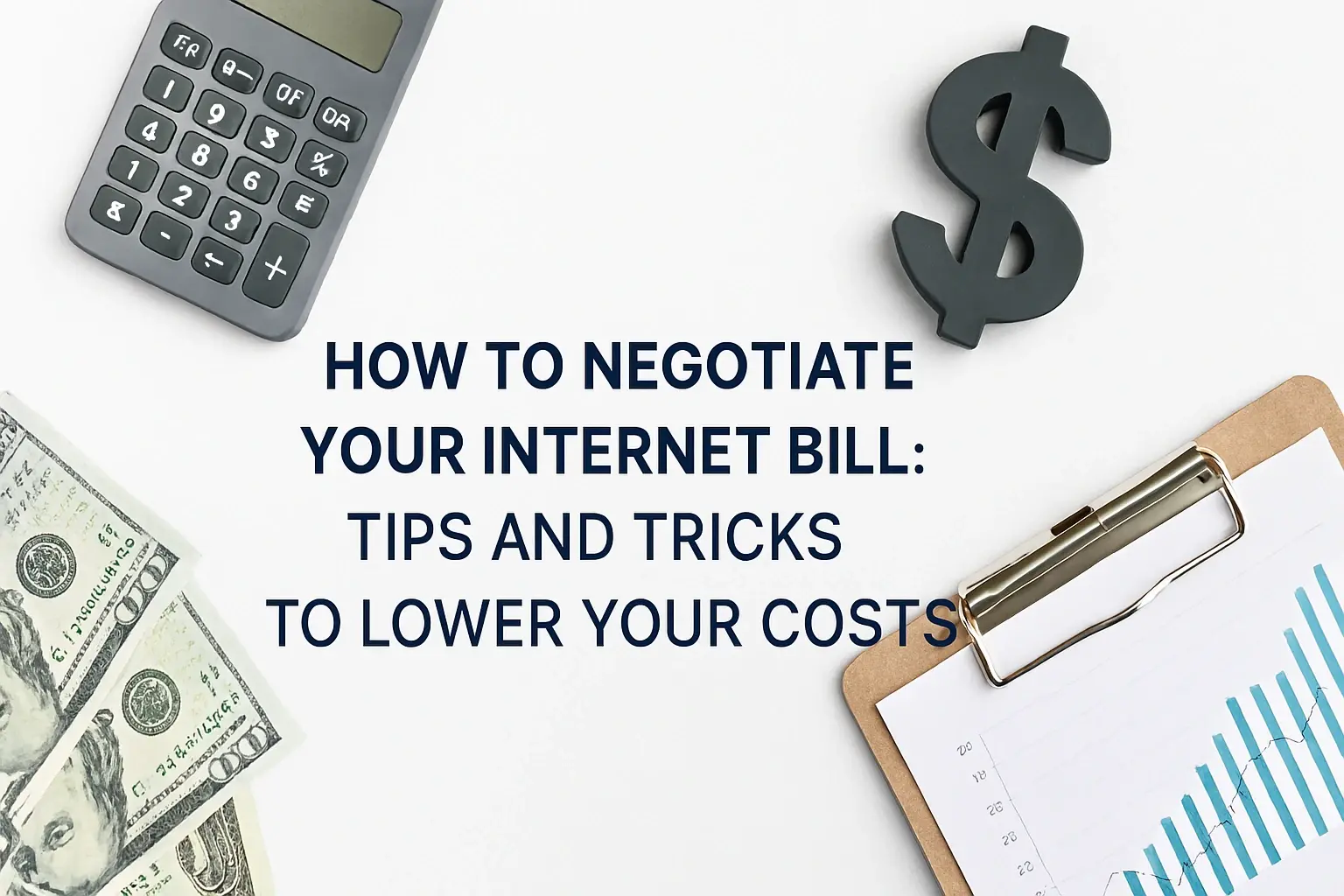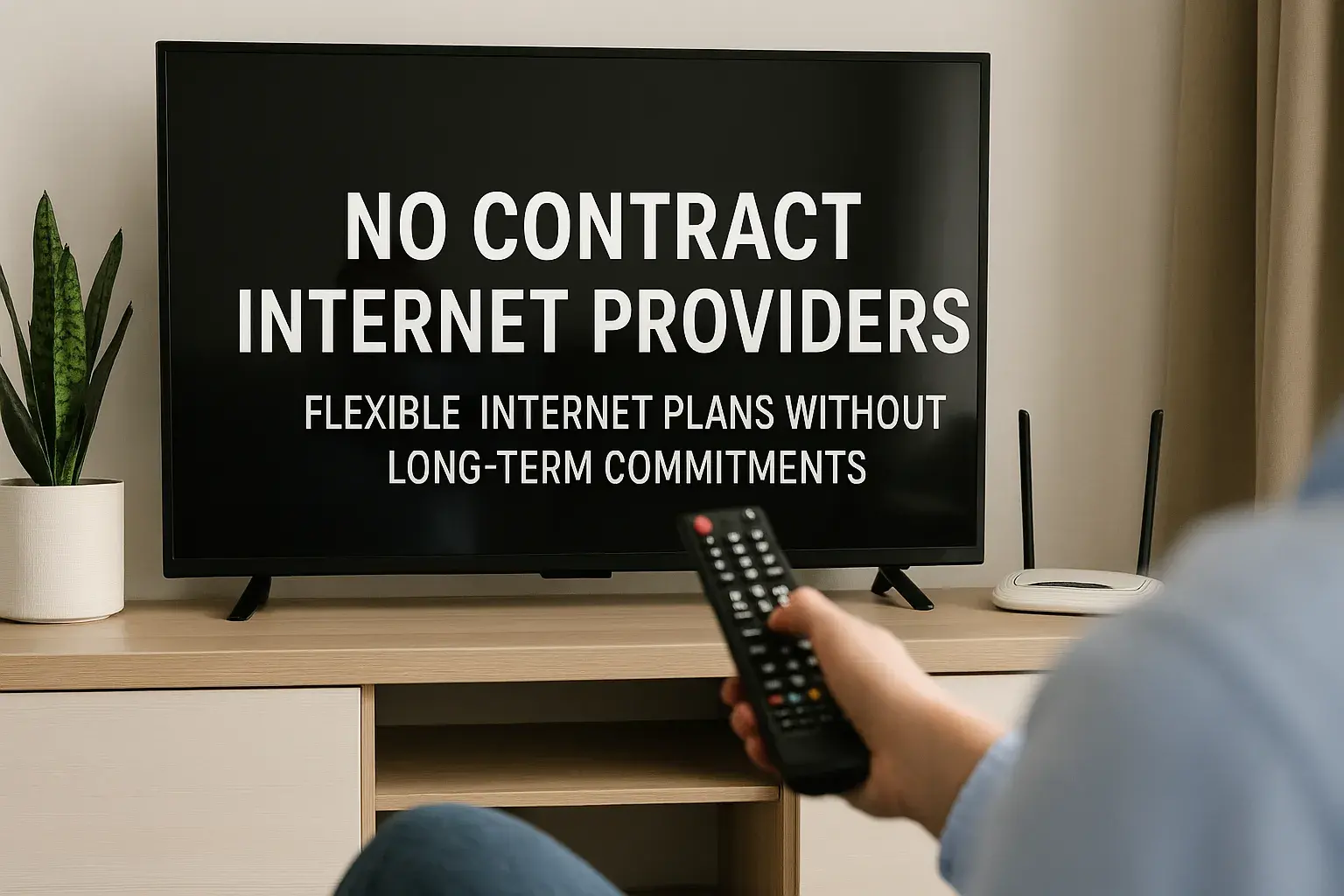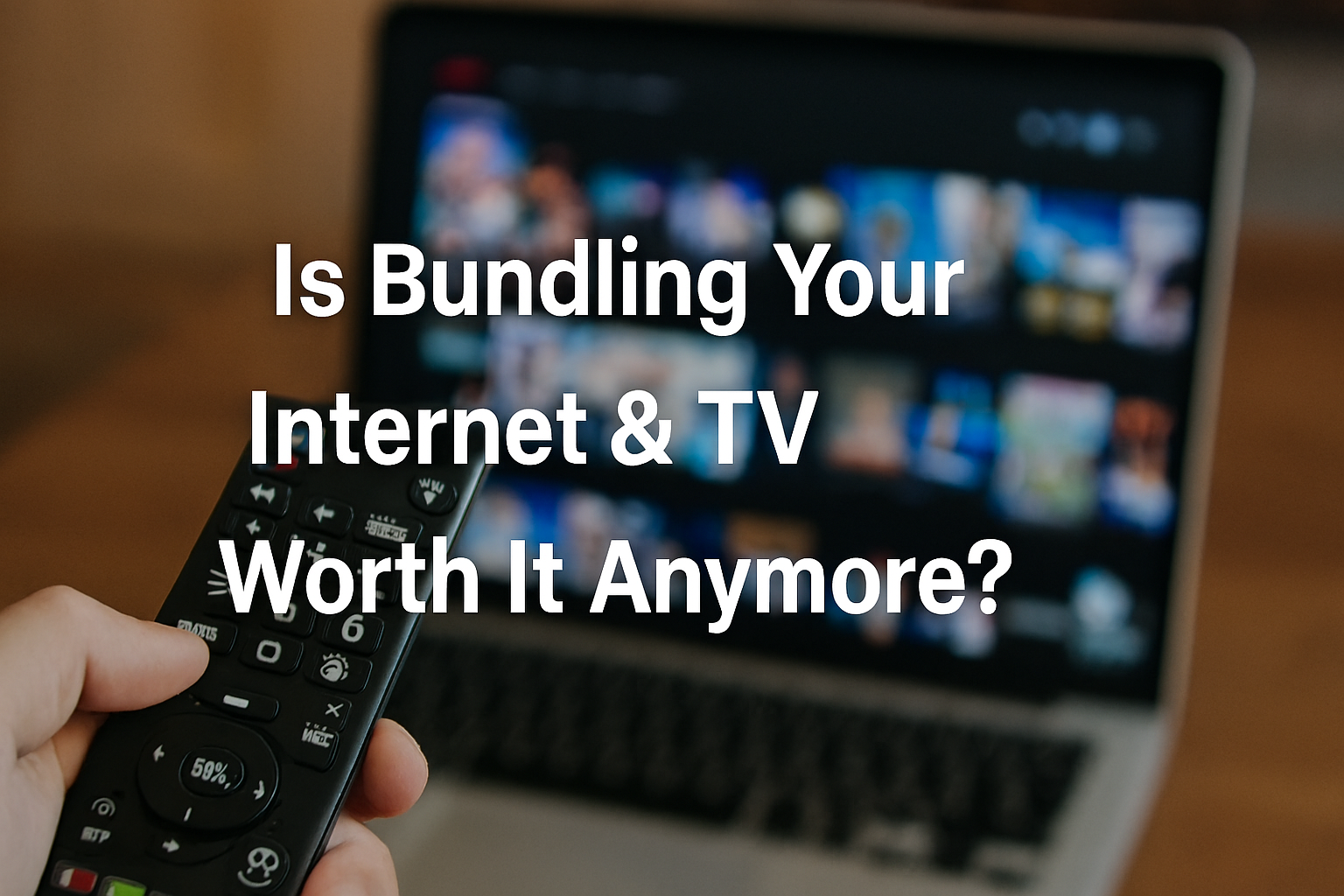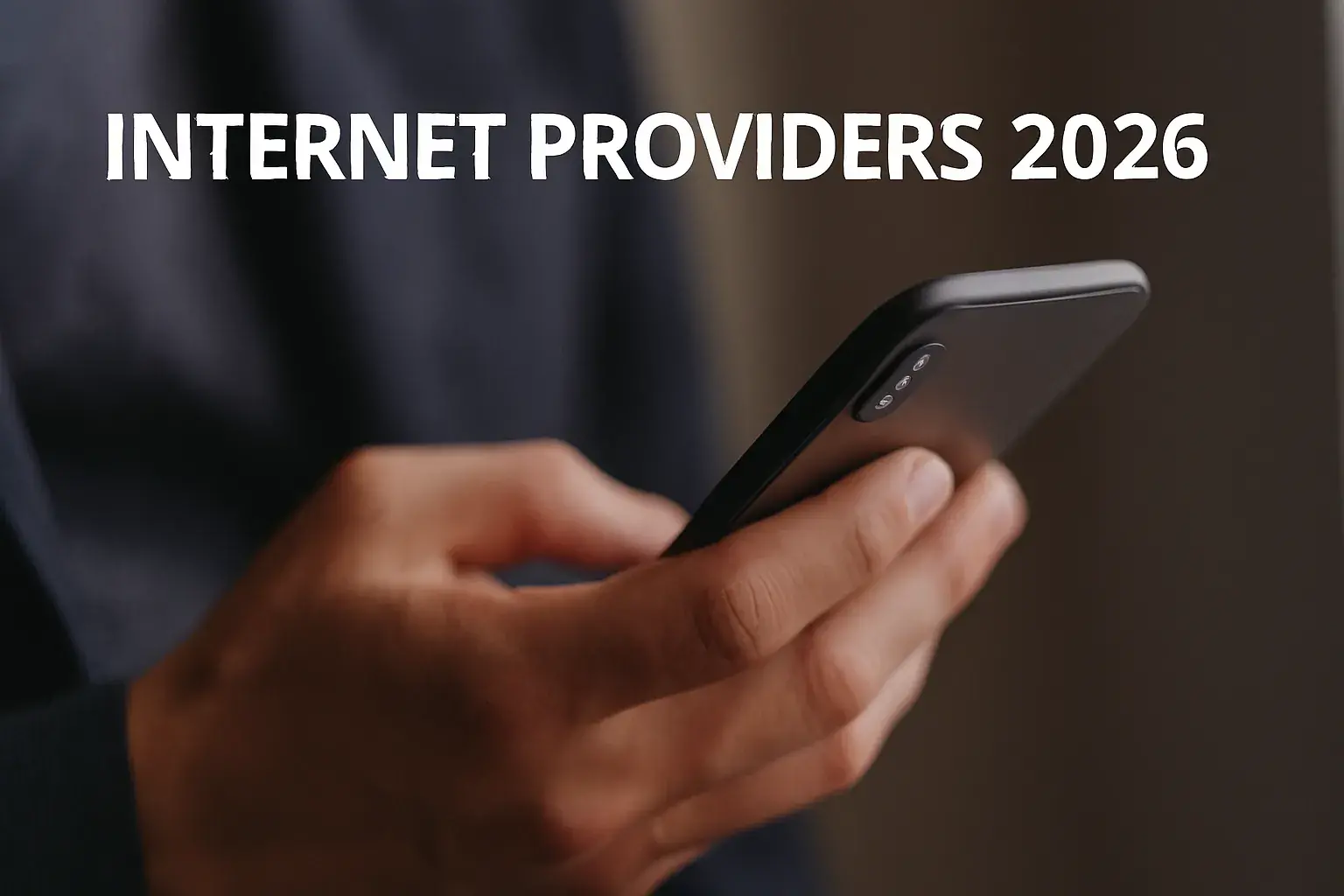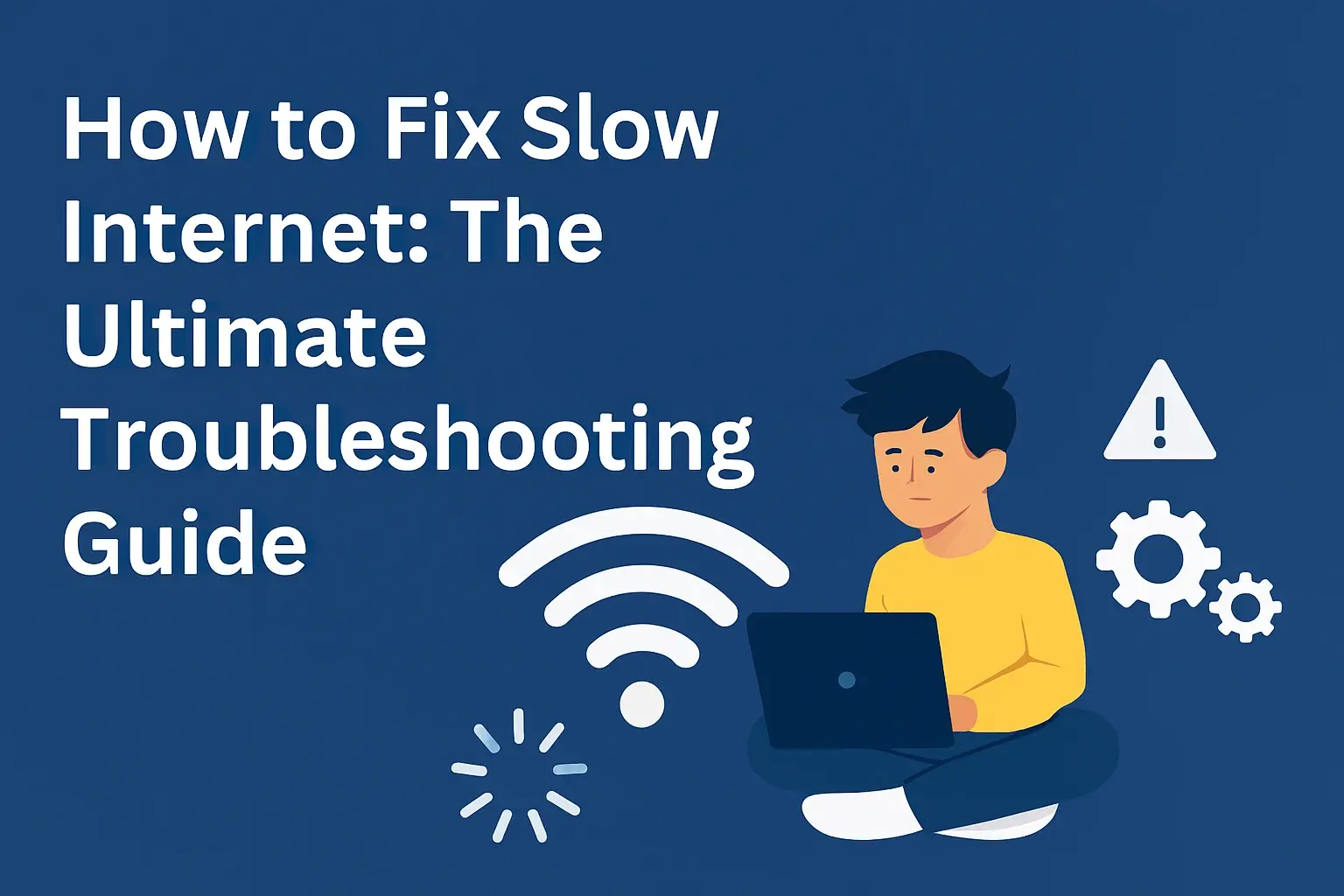The Ultimate Guide to No-Contract Internet Plans in 2025: Flexibility, Freedom, and Fast Speeds

In today's digital age, a reliable internet connection is essential for work, entertainment, and staying connected. Traditionally, internet service providers (ISPs) required customers to sign long-term contracts, often spanning 12 to 24 months, to secure specific rates or services. However, the rise of no-contract internet plans has transformed the landscape, offering consumers greater flexibility and freedom. These month-to-month plans allow you to change or cancel your service without the burden of early termination fees (ETFs), making them ideal for those who value adaptability.
This comprehensive guide explores no-contract internet plans, their benefits and drawbacks, how they compare to traditional contract plans, and how to choose the right one for your needs. We’ll also highlight top providers offering these plans in 2025 and answer common questions to help you make an informed decision.
What Are No-Contract Internet Plans?
No-contract internet plans are service agreements that don’t require a long-term commitment. Instead of locking you into a year-long or multi-year contract, these plans operate on a month-to-month basis, allowing you to cancel or switch providers at any time without penalties. This flexibility is particularly appealing for renters, students, frequent movers, or anyone who wants to avoid being tied down by a contract.
Providers like T-Mobile, Verizon, AT&T, CenturyLink, and Spectrum offer no-contract plans with a range of speeds and features, from 5G home internet to high-speed fiber connections. For example, T-Mobile’s 5G Home Internet provides unlimited data and no equipment fees, while AT&T Fiber offers speeds up to 5 Gbps without an annual contract.
Why Are No-Contract Plans Gaining Popularity?
The shift toward no-contract plans reflects changing consumer preferences and technological advancements. Here are some reasons why these plans are becoming a go-to choice:
-
Flexibility: Life can be unpredictable—whether you’re relocating, changing jobs, or exploring new providers, no-contract plans let you adapt without financial penalties.
-
No Early Termination Fees: Traditional contracts often impose hefty ETFs if you cancel early. No-contract plans eliminate this risk, giving you peace of mind.
-
Transparent Pricing: Many no-contract plans offer straightforward pricing without hidden fees or sudden price hikes after an introductory period.
-
Access to Cutting-Edge Technology: Providers can quickly roll out new technologies like 5G or fiber optics to no-contract customers, ensuring you stay ahead of the curve.
Benefits of No-Contract Internet Plans
No-contract plans come with several advantages that make them appealing for a wide range of users:
-
Freedom to Switch Providers: If you’re dissatisfied with your ISP’s service, speed, or customer support, you can switch to another provider without worrying about penalties.
-
No Long-Term Commitment: Ideal for those who move frequently or prefer short-term arrangements, such as renters or students.
-
No Cancellation Fees: Most no-contract plans allow you to cancel without additional charges, though it’s wise to confirm the terms with your provider.
-
Month-to-Month Billing: This simplifies budgeting, as you’re not locked into a fixed rate for an extended period.
Drawbacks of No-Contract Internet Plans
While no-contract plans offer significant benefits, there are some potential downsides to consider:
-
Higher Monthly Costs: Some no-contract plans may have higher monthly rates compared to promotional rates offered by contract plans. However, the flexibility to cancel can offset this if you don’t stay with the provider long-term.
-
Potential Data Caps: Although many no-contract plans offer unlimited data, some may impose data caps, which could limit heavy users like gamers or streamers.
-
Fewer Bundled Services: Traditional contract plans often bundle internet with TV or phone services for cost savings. No-contract plans may not offer these bundles or may charge more for them.
Despite these drawbacks, the flexibility and transparency of no-contract plans often make them a worthwhile choice for many consumers.
Comparison with Traditional Contract Plans
When deciding between no-contract and traditional contract plans, consider the following factors:
-
Cost Over Time: Contract plans often feature lower introductory rates that increase after the promotional period. No-contract plans may have consistent pricing, making budgeting easier. For example, a contract plan might cost $30/month for the first year but rise to $60/month, while a no-contract plan might stay at $50/month. If you cancel early, a no-contract plan avoids ETFs, potentially saving you money.
-
Speed and Reliability: Both types of plans can offer high speeds, including fiber (up to 5 Gbps) and 5G (up to 300 Mbps or more). Reliability depends more on the provider and infrastructure than the contract type.
-
Customer Service: Research the provider’s reputation for customer support. Some ISPs prioritize contract customers, but many no-contract providers, like T-Mobile, are known for strong service.
-
Promotions and Discounts: Contract plans often include introductory discounts or bundled services, while no-contract plans may offer perks like streaming subscriptions or price guarantees.
Your choice depends on your lifestyle and priorities—flexibility versus potential cost savings.
How to Choose the Right No-Contract Plan
Selecting the best no-contract internet plan requires careful consideration of your needs and options. Follow these steps:
-
Assess Your Internet Needs: Determine the speed and data requirements for your household. For example, streaming 4K video or online gaming requires higher speeds (100 Mbps or more) and unlimited data.
-
Check Availability: Use the provider’s online availability checker to confirm which plans are available at your address. Availability varies by location, especially for fiber and 5G services.
-
Compare Plans and Prices: Evaluate speeds, monthly costs, and additional features like free equipment, streaming perks, or price guarantees. For instance, T-Mobile’s ALL-IN plan includes Hulu and Paramount+ subscriptions.
-
Read Reviews: Check customer reviews on sites like HighSpeedInternet.com or BroadbandNow.com to assess reliability and service quality.
-
Consider Long-Term Value: Look for plans with price guarantees or incentives, such as Verizon’s offer to cover up to $500 in ETFs when switching from another provider.
By following these steps, you can find a plan that balances speed, cost, and flexibility.
Top No-Contract Internet Providers in 2025
Here’s a detailed look at some of the best no-contract internet providers available in 2025, based on speed, pricing, and features:
|
Provider |
Plan Name |
Price (/mo) |
Speed |
Type |
Key Features |
|---|---|---|---|---|---|
|
T-Mobile Home Internet |
RELY |
$35 (with voice line) |
87–318 Mbps |
5G Wireless |
Unlimited data, 5G gateway, 5-year price guarantee, no equipment fees |
|
T-Mobile Home Internet |
ALL-IN |
$55 (with voice line) |
134–415 Mbps |
5G Wireless |
Includes Hulu/Paramount+, Advanced Cyber Security, 24/7 tech support |
|
Verizon 5G Home Internet |
5G Home |
$35 (with AutoPay) |
Up to 300 Mbps |
5G Wireless |
No data caps, multi-year price guarantee, up to $500 ETF credit |
|
AT&T Fiber |
Fiber Internet 300 |
$55 |
Up to 300 Mbps |
Fiber |
No annual contract, no equipment fees, reliable fiber connection |
|
CenturyLink |
Simply Unlimited Internet |
$55 |
Up to 140 Mbps |
DSL/Fiber |
No cancellation fees, unlimited data, option to use own equipment |
|
Spectrum |
Internet Premier |
$60 (for 12 mos) |
Up to 500 Mbps |
Cable |
No data caps, free modem, no contracts |
|
Xfinity |
Internet 300 |
$30 |
Up to 300 Mbps |
Cable |
No annual contract, affordable entry-level plan |
|
Straight Talk |
Home Internet |
$45 |
25–100 Mbps |
5G/LTE |
Unlimited data, requires $99.99 router purchase, no contracts |
Note: Prices and availability may vary by location. Check with providers for the most accurate details.
-
T-Mobile Home Internet: Known for wide availability (over 60% of U.S. locations per FCC data), T-Mobile offers 5G plans with unlimited data and a 15-day money-back guarantee. Their ALL-IN plan includes streaming perks, making it ideal for entertainment-focused households. Learn more.
-
Verizon 5G Home Internet: Offers competitive pricing and a multi-year price guarantee. Their plans are ideal for those switching from contract-based providers, with up to $500 in ETF credits. Check availability.
-
AT&T Fiber: Provides high-speed fiber plans with no contracts, perfect for users needing reliable, fast connections for work or gaming. Explore plans.
-
CenturyLink: Offers affordable DSL and fiber plans with no cancellation fees, suitable for budget-conscious users. Check availability.
-
Spectrum: Known for consistent cable internet speeds and no data caps, Spectrum is a solid choice for households with multiple users. View plans.
-
Xfinity: Provides a range of cable plans with no contracts, starting at budget-friendly prices. Learn more.
-
Straight Talk: A prepaid option with unlimited data, ideal for those seeking simplicity and no credit checks. Requires a one-time router purchase. Explore plans.
Conclusion
No-contract internet plans offer a compelling alternative to traditional long-term contracts, providing flexibility, transparency, and access to modern technologies like 5G and fiber. Whether you’re a frequent mover, a tech enthusiast, or someone who values freedom in their internet choices, these plans cater to a wide range of needs. By assessing your internet requirements, comparing providers, and reviewing terms, you can find a no-contract plan that delivers fast, reliable service without tying you down. Explore options from top providers like T-Mobile, Verizon, and AT&T to stay connected on your terms in 2025.
Faq
1. Are no-contract internet plans more expensive than contract plans?
While some no-contract plans may have higher monthly rates, the flexibility to cancel without ETFs can save money if you don’t stay with the provider long-term. Compare total costs over time to determine the best value.
2. Can I get high-speed internet with no-contract plans?
Yes, many providers offer high-speed options, including fiber (up to 5 Gbps with AT&T) and 5G (up to 415 Mbps with T-Mobile). Check provider details to confirm available speeds.
3. Do no-contract plans have data caps?
Many no-contract plans, like those from T-Mobile, Verizon, and Spectrum, offer unlimited data. However, some plans may have caps, so always review the terms before signing up.
4. How do I check if no-contract internet is available in my area?
Most providers offer online availability checkers where you enter your address to see available plans. For example, visit T-Mobile’s checker or Verizon’s coverage map.
5. What happens if I need to cancel my no-contract plan?
You can typically cancel anytime without ETFs. Confirm with your provider to understand any specific requirements, such as returning equipment.
